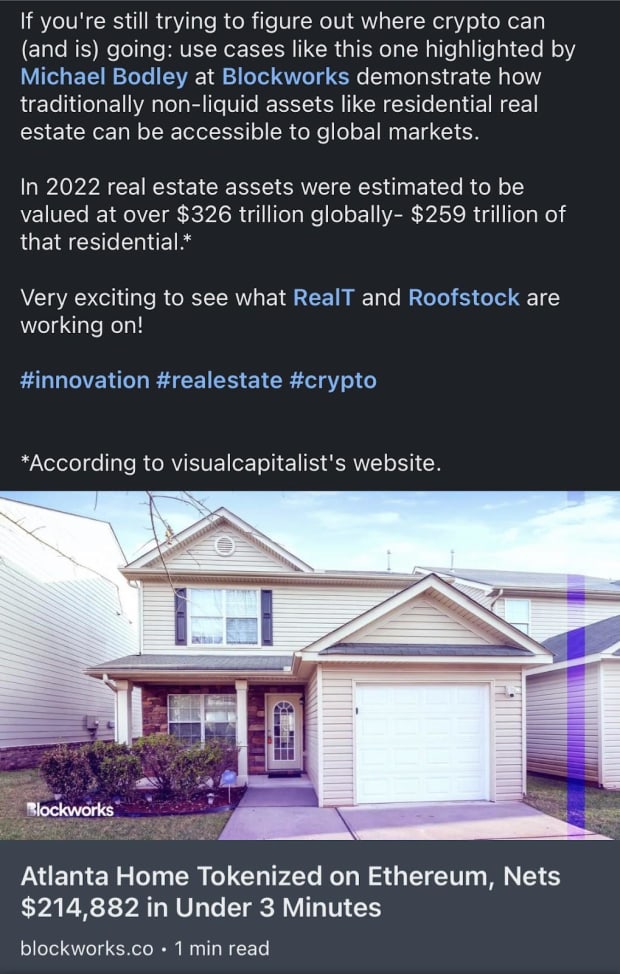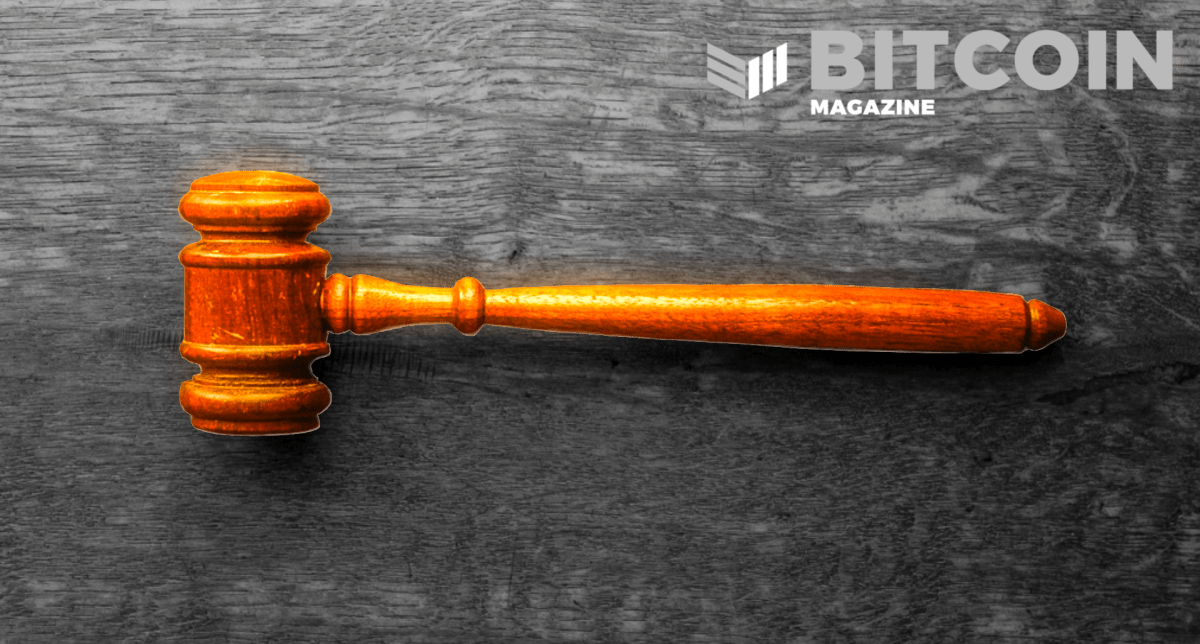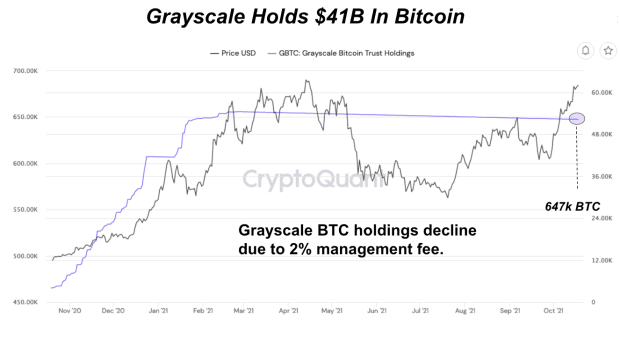While Others Try To Tokenize Everything, Bitcoin Stores Value
Tokenization of real-world assets on other blockchains just perpetuates the financial issues that Bitcoin hopes to fix.

This is an opinion editorial by Mickey Koss, a West Point graduate with a degree in economics. He spent four years in the infantry before transitioning to the Finance Corps.
The demand for tokenizing assets like real estate is not a solution to, but rather a symptom of, the problems that bad money perpetuates. Real estate should be reduced to its utility value as a dwelling or place of business, rather than used as a store of value by proxy if we ever hope to solve the growing gap in wealth inequality.

Blockworks highlighted this “advancement” in technology without properly addressing the potential side effects that widespread asset tokenization may cause. In the comments section, tokenization is touted as a means for individuals who are unable to purchase a home of their own to participate in the real estate market. But why are houses so expensive in the first place?
Because they are being used as stores of value, a former function of fiat money that is no longer possible due to decades of fiscal and monetary alchemy that has decimated peoples’ purchasing power.
Tokenizing assets like real estate will only make matters worse as crowds shove money into the market, driving prices higher. It becomes a self-fulfilling prophecy. People buy houses because they know the prices will go up, then the prices do go up and more demand comes in to chase the gains. Every investor following their individual incentives puts owning a home further out of reach for the average citizen. This is not a solution.
Furthermore, a “blockchain” is simply a ledger, or record of who owns what. With Ethereum especially, there is no meaningful link to the real world which would allow for native contract enforcement, preventing rug pulls of these token holders. The whole system ultimately relies upon legacy law enforcement and the judicial system to uphold the property rights of these investors — a system that appears to be increasingly hostile in enforcement actions against the crypto industry writ large.
Bitcoin adoption is fundamentally different, a fact that crypto folks seem to misunderstand completely. Rather than mindlessly tokenizing assets, Bitcoin seeks to fix the monetary issues that drive a desire to do so in the first place. By serving as an actual store of value, bitcoin will drain the monetary premium that real estate has accrued over the past decades due to the broken monetary system. Under a bitcoin standard, housing will ultimately collapse to its utility value, making houses affordable once more to the everyday citizen.
Tokenization is just another perpetuation of the current system in a faux peer-to-peer wrapper, disguised as financial innovation. Don’t let the new shiny thing distract you from what’s broken. Fix the money, and all of these things become meaningless.
This is a guest post by Mickey Koss. Opinions expressed are entirely their own and do not necessarily reflect those of BTC Inc or Bitcoin Magazine.









